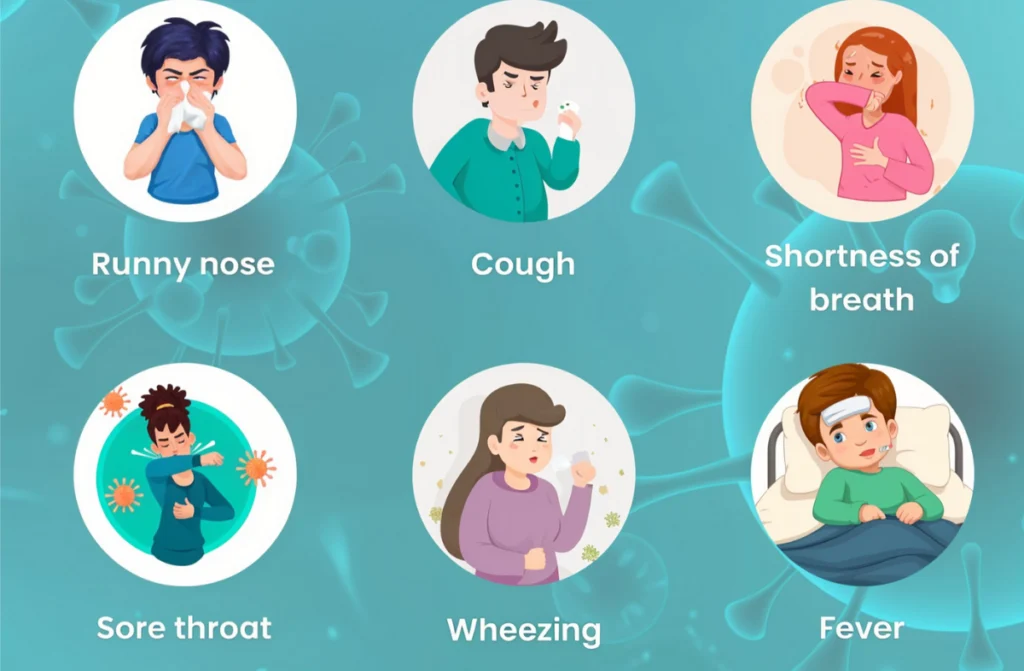Is human metapneumovirus dangerous? This question has been on the minds of many as awareness about the virus grows. Human metapneumovirus (HMPV) is a respiratory virus that can affect people of all ages, but it is especially concerning for young children, older adults, and those with weakened immune systems. At CTS Speciality Hospital, we aim to provide clarity on the dangers of HMPV and how to stay protected. In this blog, we will explore key aspects of HMPV, compare it to other illnesses, and discuss its symptoms, risk factors, and treatment options.
What Is Human Metapneumovirus (HMPV)?
Human metapneumovirus, or HMPV, is a virus that primarily targets the respiratory system. It was first identified in 2001 and is part of the paramyxovirus family, which includes other well-known respiratory viruses like RSV (respiratory syncytial virus). HMPV spreads through respiratory droplets when an infected person coughs or sneezes.
While it’s common for HMPV to cause mild symptoms like a cold, it can lead to severe respiratory infections in vulnerable individuals, making it a significant concern for public health. This brings us back to the question: Is human metapneumovirus dangerous?
HMPV infections are seasonal, typically peaking during late winter and spring. Understanding its transmission patterns can help us reduce its impact. The virus’s ability to spread quickly within families and communities underscores the importance of early detection and prevention.

Is Human Metapneumovirus Dangerous?
The danger posed by HMPV largely depends on the individual’s age and health status. In healthy adults, HMPV often causes mild, cold-like symptoms that resolve on their own. However, for high-risk groups such as infants, the elderly, and those with underlying health conditions, HMPV can lead to severe illnesses like pneumonia or bronchitis. This is why many people ask, is human metapneumovirus bad for you? For certain individuals, the answer can be yes.
To illustrate, consider a case study involving an elderly patient with chronic obstructive pulmonary disease (COPD). After being exposed to HMPV, their symptoms quickly escalated to severe respiratory distress, requiring hospitalization. This example highlights why understanding the risks associated with HMPV is crucial.
Is Human Metapneumovirus Just a Cold?
While human metapneumovirus often mimics a common cold, it’s not just a cold. Symptoms can escalate, leading to serious complications in certain cases. Is human metapneumovirus dangerous? The short answer: yes, it can be, especially for those with compromised immunity. Symptoms can include:
- Fever
- Coughing
- Wheezing
- Shortness of breath
- Congestion
- Fatigue
Parents of young children often dismiss early symptoms as a regular cold, but delays in seeking medical care can lead to complications. For instance, prolonged wheezing and shortness of breath can result in hospital admissions. Is human metapneumovirus bad for you? It depends on how early intervention is sought.
Is HMPV as Dangerous as COVID-19?
Many people wonder, is HMPV as dangerous as COVID-19? The two viruses share similarities, such as targeting the respiratory system and being transmitted through droplets. However, COVID-19 has shown a broader range of severe systemic effects and higher mortality rates, especially before vaccines were available.
Key differences include:
- Contagiousness: COVID-19 spreads more rapidly.
- Severity: HMPV is less likely to cause systemic complications.
- Treatment: COVID-19 has specific treatments and vaccines, whereas HMPV is managed symptomatically.
Still, HMPV should not be taken lightly. It’s essential to monitor symptoms and seek medical care if they worsen. Is HMPV as dangerous as COVID-19? Perhaps not, but for high-risk groups, the consequences can be equally severe. CTS Speciality Hospital’s team stresses the importance of understanding these nuances to prevent misinformation.
HMPV Dangerous or Not?
So, HMPV dangerous or not? For most healthy individuals, the answer is no. However, for those at higher risk, the virus can lead to severe complications, including hospitalization. Is human metapneumovirus dangerous? At CTS Speciality Hospital, we recommend taking preventive measures such as practicing good hand hygiene and avoiding close contact with sick individuals.
Preventive tips include:
- Washing hands frequently with soap and water
- Using alcohol-based hand sanitizers
- Avoiding crowded places during peak seasons
These small steps can significantly reduce your risk of contracting HMPV.
HMPV vs. COVID-19
Comparing HMPV and COVID-19 helps shed light on their differences. Is HMPV as dangerous as COVID-19? While both are respiratory viruses, HMPV generally causes milder symptoms. However, this does not mean HMPV should be ignored. Understanding their similarities and differences can help individuals better protect themselves.
- Symptoms Overlap: Both viruses can cause fever, cough, and difficulty breathing.
- Vaccine Availability: Vaccines are available for COVID-19 but not for HMPV.
- At-Risk Groups: Both primarily affect vulnerable populations but differ in severity.
Public health measures, such as masking and social distancing, originally designed for COVID-19, have also been effective in reducing HMPV transmission. HMPV dangerous or not? For individuals who follow these practices, the risk is greatly minimized.
What Are the Symptoms of Human Metapneumovirus?
Recognizing the symptoms of HMPV is crucial. Early detection can prevent complications. Symptoms of HMPV often start mildly but can escalate:
- Fever and chills
- Persistent cough
- Nasal congestion
- Shortness of breath
- Wheezing
- Fatigue and body aches
If symptoms worsen, seek medical care immediately. Is human metapneumovirus bad for you? It can be if left untreated. At CTS Speciality Hospital, we encourage individuals to report persistent or severe symptoms to a healthcare provider promptly.
What Causes a Human Metapneumovirus Infection?
HMPV infections are caused by inhaling respiratory droplets containing the virus. Common causes of transmission include:
- Close contact with an infected person
- Touching contaminated surfaces
- Poor hand hygiene
Understanding how the virus spreads can help answer the question, is human metapneumovirus dangerous? By reducing exposure, the risk can be minimized. Disinfecting frequently touched surfaces and maintaining good personal hygiene can significantly lower the chances of infection.
What Are the Risk Factors for Human Metapneumovirus?
Certain factors increase the risk of severe HMPV infections. These include:
- Age: Infants and older adults are at higher risk.
- Chronic Illnesses: Asthma, COPD, and heart disease increase vulnerability.
- Weakened Immune Systems: Cancer treatments, organ transplants, or HIV can heighten risk.
By understanding these risk factors, you can take steps to protect yourself and your loved ones. HMPV dangerous or not? For those in these categories, the answer is clear. Vaccination for other respiratory viruses like the flu and pneumococcal diseases can indirectly reduce the severity of HMPV complications.
Conclusion
Is human metapneumovirus dangerous? For most, it’s a manageable illness. But for vulnerable populations, it can be severe and even life-threatening. At CTS Speciality Hospital, we emphasize the importance of awareness, prevention, and timely medical care.
